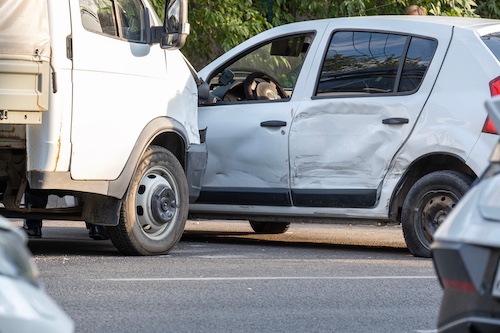
Understanding Personal Injury Claims After Car Accidents
Your Rights and Path to Compensation After a Charlotte Car Crash The aftermath of a car accident can feel overwhelming. One moment you’re driving through Charlotte, and the next you’re

Your Rights and Path to Compensation After a Charlotte Car Crash The aftermath of a car accident can feel overwhelming. One moment you’re driving through Charlotte, and the next you’re

Understanding Car Accident Settlements in the Charlotte and Spartanburg Region Understanding how car accident settlements work is an important step for anyone injured in a collision in the Carolinas. In

Steps to Take After a Hit-and-Run Accident in North Carolina Being involved in a hit-and-run accident can be frightening, confusing, and overwhelming. In just a matter of seconds, a negligent

Suffering from Motorcycle Accident Injuries? How a Charlotte Motorcycle Accident Lawyer Can Protect Your Rights and Recovery Riding a motorcycle is an exhilarating experience, but it also comes with risks.

Understanding Your Legal Options After a Car Accident Car accidents happen in an instant but can have lasting consequences that affect your health, finances, and future. Understanding the different types

Comparative Negligence in North Carolina: What You Need to Know If you’ve been involved in a car crash, determining who is at fault is one of the most important factors

Hire a Car Accident Lawyer for Maximum Compensation The collision happened in seconds on a busy Charlotte intersection. Now you’re dealing with mounting medical bills, a totaled vehicle, lost wages

When One Unsafe Ride Can Change Your Life, Understanding Motorcycle Helmet Laws Becomes Critical Motorcycles offer a sense of freedom and exhilaration unlike any other vehicle on the road. But

A Clear, Helpful Guide for Injured Victims by Panchenko Law Firm Being involved in a car accident can turn your life upside down in a matter of seconds. Suddenly, you’re

Rideshare Accidents and the Complexity of Multiple Insurance Policies Rideshare services like Uber and Lyft have transformed transportation in Charlotte and across North Carolina. With just a few taps on

Injured in a Commercial Truck Accident: What You Need to Know Now If you are injured in a commercial truck accident, the impact can be immediate and severe. Large trucks

The Most Common Injuries in Truck Accidents At Panchenko Law Firm, we are committed to protecting the rights of those injured by negligence in North Carolina. Based in Charlotte, our